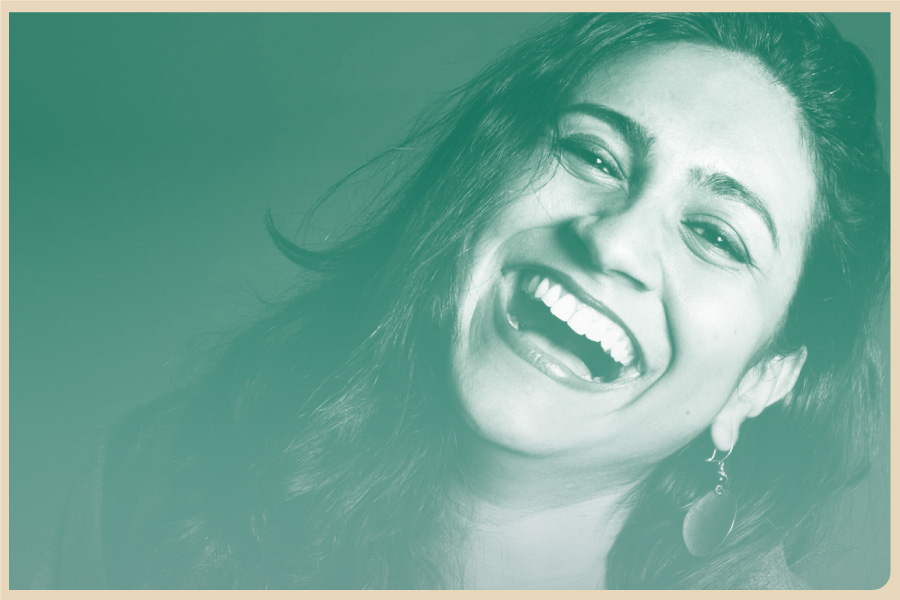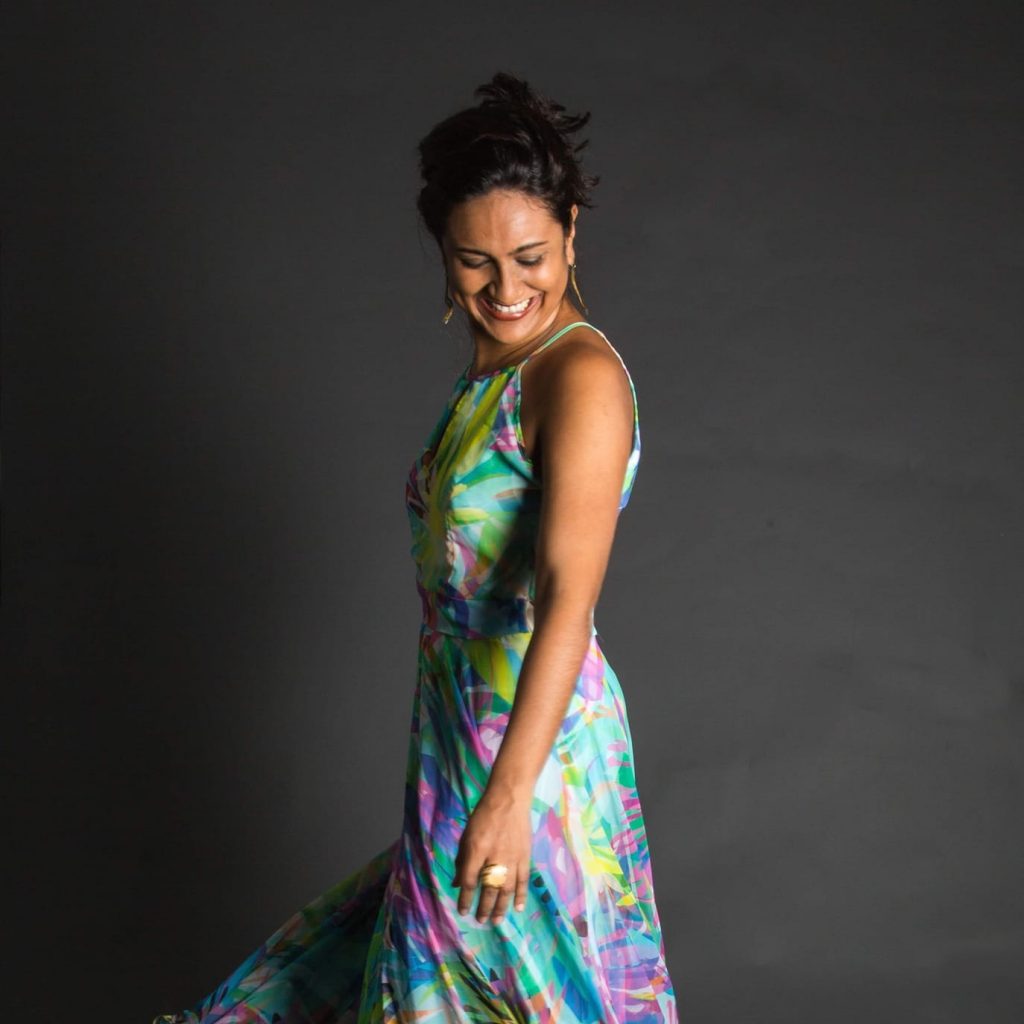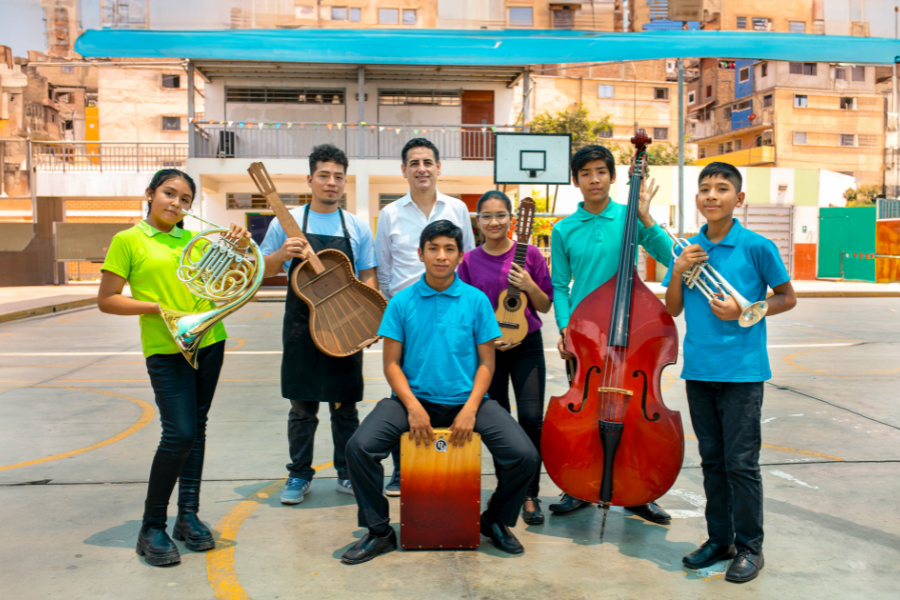Julianna Santos, stage director: “The great challenge is to understand how we build new relationships and what are the possible dialogues with society and the audience”

The Brazilian stage director recently premiered at the 23rd Festival Amazonas de Ópera a new production for the opera Três minutos de sol, by the São Paulo composer Leonardo Martinelli. In this interview, she tells us about her training in the discipline, the transforming power of art, the challenges for the lyrical world in a post-pandemic world, and she recommends some Brazilian composers who are currently talking. According to her, the greatest challenge for stage direction “is to develop that listening to the other, how to be provocative and active.”
In the “web opera” Três minutos de sol, by the São Paulo composer Leonardo Martinelli, the three protagonists are pigeonholed into scenes that seem disturbingly familiar to us. Duda, Laura and Marcos live confinement and distance, two human concepts that became part of our lives during the last year and a half of the pandemic. The trio of characters experience a digital love triangle in a simple, but haunting, even claustrophobic staging.
The production, recently premiered at the 23rd Amazonas Opera Festival, is the work of stage director Julianna Santos, who since 2003 has been actively participating in the lyrical and cultural scene in Brazil. Based in Rio de Janeiro, Julianna has participated in more than 80 opera productions, a field in which, according to her, she never imagined herself developing.
– Have you always wanted to be a stage director?
I did not imagine being a stage director, especially an opera. I studied at an excellent school in Rio de Janeiro (Colégio Pedro II) and there I had the opportunity to take theater and dance classes. As a child I always liked to organize games and I especially liked the theater. Fortunately in this school I had the opportunity to get involved with art.
From there I participated in an amateur theater group, as an actress. Two of my classmates had joined the School of Theater Direction of the UFRJ (Federal University of Rio de Janeiro) and they encouraged me a lot to try the exam to enter the faculty. In college I learned about opera and fell completely in love.
I was absolutely delighted with the performance through song, with the number of people involved in the work to achieve a single goal, with the power of music that spans centuries and is kept alive throughout history. Since then I have found my place. I have been working with the opera since 2003, it has been impossible to stop!
Music straight to the soul
– What do you like the most about music?
I always see the transformative power of art, whether in those who produce it or those who see it. It is fascinating to always be involved with new groups, new stories that are told, new contexts.
It is fascinating to revisit times, to investigate how a certain topic changed throughout history and to understand the meaning of continuing to have contact with so many of these stories, the human sense. It is fascinating to see operas written and created by contemporary composers who are also fascinated by this art.
It is beautiful to see how the music passes through a channel that many times is not rational, but goes straight to the soul, causing that chill down the spine that we don’t even know how to explain. It is very gratifying to see this art transforming lives and committed to the development of a better world.
– What is your favorite show?
I have a hard time choosing. Considering my experience, I have participated in about 80 different opera productions. I have an absolute and undeniable affection for all of them, since each one taught me a lot, through dialogue with the singers, with the entire technical and creative team, with joint creation, with each meeting with the public.
It is really exciting and chilling to remember each of the productions in which I have participated. To answer this question, I will put aside the productions I worked on. So I’m going to pick something here that I didn’t participate in to facilitate. I really enjoyed the production of Shostakovich’s The Nose directed by artist William Kentridge. That production is brilliant.
Rethinking operatic language
– What challenges does the music scene face today?
Since March of last year we have lived through this era of the Covid-19 pandemic. Some theaters were already related to technology, with the production of streams and already aware of this need to actively interact with new technological media, especially social networks.
The pandemic accelerated this process for those who were unprepared and we began to rely exclusively on social media to keep in touch with our audience. Since then, a great deal of digital content has been produced in many different ways. We had to learn to deal with these technological means, to rethink the operatic language, to be flexible, to adapt to the protocols and to continue making quality art even from a distance.
After this stage, the great challenge is to understand what was left of this experience, how we build new relationships from it, what are the possible dialogues with society and with the audience, thinking about language, listening, connection, communication.
Develop listening and provoke
– What is your favorite theater?
Brazilian theaters are very special, it would be unfair to mention only one when you have a special history with each of them. I had the privilege of working in Brazil in beautiful and special theaters and what a great honor mine was: Palácio das Artes de Belo Horizonte, Theatro Amazonas, Municipal Theater of Rio de Janeiro, Municipal Theater of São Paulo, Theatro da Paz, Theatro São Pedro. But there is a little gem in Brazil, which I have already visited, which is the Municipal Theater of Ouro Preto, inaugurated in 1770.
– What do you consider your greatest professional achievement?
I have been working with opera since 2003. I worked as an assistant, stage manager and stage director. I graduated in theater directing at UFRJ, I think my career has been designed very gradually and I am very happy with it.
Our professional success is linked to technique, discipline and above all the perception of the world when we talk about art. I had the pleasure of directing Claudio Santoro’s opera Alma at the Amazon Opera Festival in 2019, I consider it an excellent professional achievement. I keep learning and drawing my way. In the specific case of stage direction, I consider that the greatest challenge is to develop that listening to the other, how to be provocative and active.
Engaging the audience, reaching out to your cast and crew, motivating everyone toward an ideal, and finding a path together. Construction must be constant! Each achievement teaches a lot and a lot. This is the wealth of our profession.
Brazil, a cultural country
– What is the contemporary artist that you are most excited to see or listen to?
I go to the Brazilians: Denise de Freitas, Paulo Szot, Fernando Portari.
– How do you think it is the best Latin American city to experience culture?
I couldn’t tell since it would only be a perception. I live in Brazil in Rio de Janeiro. Here in Brazil, São Paulo ends up being more culturally active, but I have not lived elsewhere to live day-to-day in practice and choose which would be the best city.
– What do you stand out from the music and cultural scene in your country?
It is very important to highlight the Amazonas Opera Festival, which this year celebrates its 23rd edition, remaining firm and constant and intelligently proposing ways of being present, in accordance with the current context.
This year, the festival produced three operas in digital format, written by contemporary composers and librettists, lasting 25 to 30 minutes, as well as short concerts, a webinar for conversations and opening dialogues with leading figures from the sector. They also continue to produce at the São Pedro Theater, which returned to the face-to-face mode with all the care and protection in relation to the protocols, in addition to the São Paulo Room.
Many other initiatives continue to occur throughout the country with effort and dedication to keep the public in touch with music, which is always life, throughout this period of so many challenges.
– What challenges does the music and cultural scene in your country have?
I believe in broadening the dialogue with society, demystifying some pre-established concepts with the certainty that opera and classical music is for everyone!
– What Latin American composer or artist inspires you?
Contemporary Brazilians, with whom I have had direct contact in recent years: Leonardo Martinelli, with whom I had the opportunity to work and recently to direct a web opera composed by him, with a contemporary theme.
– What Latin American artist has been a good ambassador of our continent in the world?
Also mentioning Brazilians, among the solo singers, we have artists who have traveled the world and have a beautiful career representing our country: Martin Muehle, Atala Ayan, Adriane Queiroz are some of them. From Latin America we have many other contemporaries, a great highlight today for the Uruguayan soprano María José Siri.
– What Latin American work would you like to perform?
I just directed one for the Amazonas Opera Festival. Três Minutos de Sol, by the contemporary composer Leonardo Martinelli. May many other Latin American works come!





